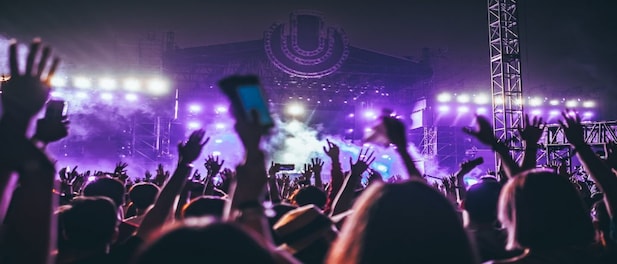
Music events are musical performances of singing and playing instruments in various venues like clubs, theaters, auditoriums and arenas. The market for music events is growing due to a rise in the number of concerts and music shows across the globe.
Whether in-person or virtual, music events bring together fans and artists around a common passion for the arts. Learn the vocab to help you prepare and execute your next event like a pro!
Festivals
Music festivals are like extended concerts that take place outdoors, with a variety of artists performing at different times on multiple stages. Spectators can choose which performers they want to see and can even discover new bands that aren’t yet on the main stage. This helps to create a community of fans for the musicians.
Festivals also provide a sense of escapism from the daily grind. They offer an escape from everyday society into a world teeming with melodies and, hopefully, sunshine. They can also be a platform for addressing social justice issues.
Some music festivals work with charitable groups to promote the cause of a particular issue. For example, they may offer mental health specialists and support groups at their events to help attendees cope with stress and anxiety. They might also have areas where attendees can meditate and practice self-care. In addition, they may use technology to connect with their audience in unique ways.
Concerts
Whether it’s an industry-changing act or just a low-key acoustic performance, concerts have a way of leaving an impression. The music is unforgettable, and the atmosphere is electric – it’s an experience that stays with you forever.
Concerts are a great place to bring people together. They allow fans to connect with other people who share a passion for the same artist, and they’re often a lot more fun than listening to music alone at home.
Some artists and bands will put on a spectacle at their concerts, including stage lighting; an image-magnification system and/or pre-recorded video; costumes or other props; and a variety of special effects such as theatrical smoke, fog and pyrotechnics. Some singers will also use backing dancers and broadcast vocal tracks over the speakers in addition to their own voice.
Music events are a popular choice for event planners because they can be held in many different ways, from small concerts to large festivals. However, attracting attendees requires a good marketing plan, and it’s important to choose music that matches the tone of the event. For example, a heavy bass song won’t work well at an early morning workshop.
Competitions
Competitions are events where participants compete against each other to see who is the best at something. They can be for all kinds of things, from sports to writing and music. The winners may win a prize, usually a trophy or money. Music competitions can help musicians improve their performance and become better at their instrument. They also provide an opportunity to meet people who share their passion for music.
For many music educators, competitions are a valuable part of the musical experience. Michael Hummel, for example, believes that competitions offer his students exposure to high-achieving ensembles at community, regional, and national levels. These experiences inspire his students to strive for excellence and build friendships with other musicians.
During the Covid-19 pandemic, online competitions became popular among young talents as a medium to advance their professional skills and to improve motivation. With efficient digital access, the contestants can observe the performances of other participants from different places around the world, evaluate their own performances by international juries, and make informed decisions about future careers.
Special events
The special events sector of the music industry consists of private or public events, fairs and festivals, as well as concerts. Special events are generally hospitality or entertainment-based and therefore have more of a social, rather than business, focus.
The right music is key to an event’s success. It sets the tone and evokes emotions, affecting how people feel during and after an event. It can also help attendees connect with one another, creating a sense of community and belonging. Music can even affect the secretion of oxytocin, which creates feelings of contentment and satisfaction.
Before planning a music event, determine your goals and the type of audience you’re targeting. Then decide if you want to host an in-person event or livestream it. It’s also important to consider your budget and find sponsors who are aligned with your goals. This will help you increase your reach and attract new attendees. Also, don’t forget to clear all licensing requirements.